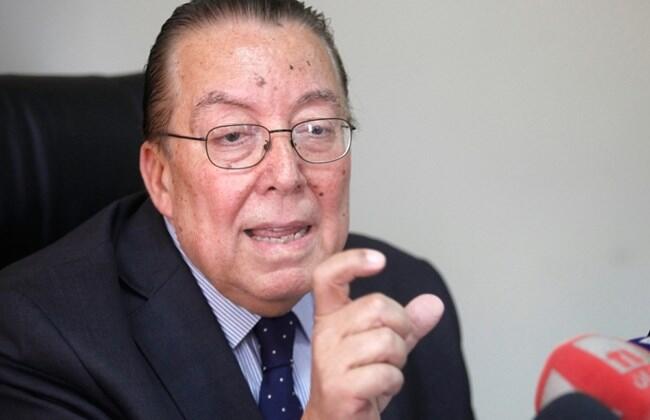Machnouk also announced that 11 companies have bid on tenders to manage Lebanon’s waste, marking progress for his ministry’s plan to overhaul how the country handles its trash. But no companies bid to manage greater Beirut’s waste, and Machnouk said Naameh would have to accept 600 tons of waste from the capital daily for an interim period of six months, down from the 3,100 tons per day it receives today. Chouf municipalities and Lebanese environmentalists said they would not allow any new waste to enter Naameh after Friday, promising to stage a sit-in at the landfill’s gates. The threat raises the prospect that garbage will again pile up on Beirut’s streets, as it did when demonstrators did the same thing last year. “We’re against [the Environment Ministry’s] plan completely. We’re going to close the street. We said we’re going to close [the landfill] permanently, and we’re not going to back down. If we have to stay for two months, we will,” said Walid Abou Harb al-Aridi, president of the union of the municipalities of al-Gharb al-Aala and Chahar. The Environment Ministry is making an eleventh-hour effort to meet a July 17 deadline to find companies to triple the amount of wasteLebanon recycles, composts and incinerates. The country currently eliminates just 23 percent of its waste this way and dumps or landfills the rest, according to a 2014 study completed in coordination with the Environment Ministry. The Cabinet set the looming deadline in a January decree and promised to close the Naameh landfill by the same date, this Friday. Chouf municipalities do not trust Machnouk’s word. “There’s no more trust between us and [the government]. We gave them six months. Now, in these three days, they’re going to reduce the amount they send to us to 600 tons?” Aridi said. Environmentalists are also rejecting Machnouk’s interim plan, and the terms of the Cabinet’s January decree. They say today’s developments pave the way for waste incineration, an environmental hazard. “They’re psychologically preparing us for incinerators,” said Paul Abi Rachid, the head of Lebanon EcoMovement. “Incinerators transform ordinary waste to toxic waste. Where are you going to go with the ash? In Europe, the whole continent sends its incinerator ash to Germany, and Germany buries it in old salt mines. We cannot do this in Lebanon. We have groundwater .” Machnouk confirmed at the news conference the Environment Ministry is amenable to waste incineration. Abi Rachid recommended Beirut and Mount Lebanon begin composting and recycling its waste immediately. “Why send the trash to the corners of this country when we can compost in each district?” he said, adding it would be simple to begin composting in old quarries. Abi Rachid called for Machnouk’s resignation. “We’ve had enough of his decisions,” he said. The Naameh landfill was meant to be a temporary solution to a 1997 crisis. But successive governments kept postponing its closure, infuriating local residents fearful for their health. The landfill was originally appointed to receive 2 million tons of waste but has instead taken 15 million. Machnouk said the country would divert the remaining 2,500 tons of waste Naameh receives daily to other landfills. “Waste management is the responsibility of every citizen in Lebanon,” he said, adding that each region must handle its own waste. Machnouk also expressed gratitude to Naameh residents for “being patient and bearing this burden for 18 years.” A leaked Environment Ministry document dated July 6 recommends sending 200 tons per day to the Burj Hammoud landfill. The municipality forced that landfill to close in 1997, however, sparking the crisis that led to the establishment of Naameh. The office of the mayor of Burj Hammoud declined to comment, telling The Daily Star it would await a formal announcement from the Environment Ministry. The Cabinet’s January decree tasked the Environment Ministry and Council for Development and Reconstruction to reorganize Lebanon’s waste management into six regional districts, and to contract the required services out to private companies. Machnouk said today that a second tender had netted 11 bids Monday morning, consisting of a mix of European and Lebanese companies. A first tender failed to attract enough bidders to guarantee a competitive bidding process, the CDR announced in May. Monday’s tender required just two companies or consortiums to bid for each regional contract, instead of three. Still, no companies have bid to manage the waste of Beirut and its two southern suburbs. A representative for Sukleen, the company that currently handles Beirut and Mount Lebanon’s trash, told The Daily Star last week the company did not bid because it did not want to assume the responsibility of finding a landfill to accept the capital’s detritus. The Daily Star











